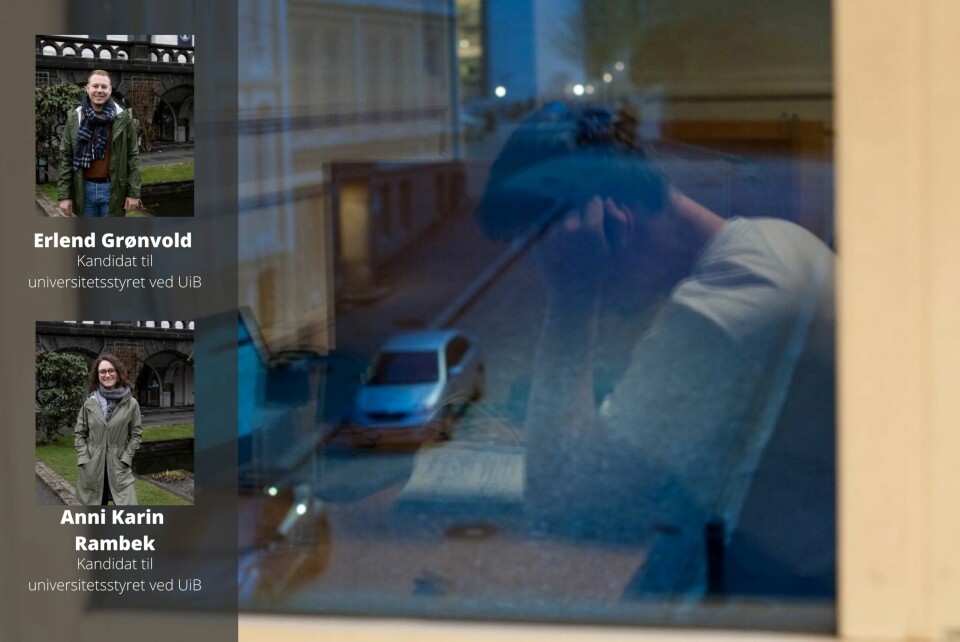Meninger
Inclusion starts with I
But it also includes U.

Dette er et innsendt innlegg. Innlegget gir uttrykk for forfatterens egne meninger.
Linguistic pun aside, we think it is about time we start to talk about inclusive learning environments – in English. As one of the largest institutions of higher education and research in Norway, several thousand international students, Ph.D.-candidates and researchers come to UiB every year. While most Norwegians are very proficient in English, successful meeting places between Norwegian and international students and researchers seem few and far between.
As former exchange students, we know the struggles and excitement of moving to a new country and getting to know a new culture and new people. We also know far too well how easy it is to fall into the trap of staying only with students who are in a similar situation. Plenty of tips have been exchanged on how to interact with Norwegians, so we see no need to contribute more to that topic.
Inclusiveand student active learning methods
What we want to address here, however, is the lack of inclusive learning methods in the courses offered at UiB, in which there are opportunities for International and Norwegian students to work together and at the same time exchange thoughts, ideas, and world views. As the large majority of the international students at UiB attend courses, just like the Norwegian students do, this would be the best area for UiB to maximize efforts in the years to come.
More inclusion and more student active learning methods would not only benefit each student in terms of the learning outcome but also provide an opening for new perspectives and an interest to explore new topics. Indeed, it might be a key criterion if UiB should manage to reach its goal of having 40 % of its students going on exchange as part of their degree.
Raiseyour voice!
More inclusive and student active learning methods require a change in the way the courses are organized at UiB today. The current situation has caused certain changes, with the appearance of digital lectures and Zoom seminars. Yet the level of interaction seems to be much the same as it has always been. We urge all students, Norwegians and international alike, to give feedback to the course instructors and student associations.
Unlike UiB, there is no I nor U in democracy, yet we still encourage you to engage in the student election of UiB that started April 22. With experience from student organizations that successfully include both Norwegian and international students and decision-making bodies at UiB working to improve the courses, we want to raise this issue in the upcoming period in the University Board. If you think it is important to have students on the board with experience as international students themselves – we would be delighted to receive your vote.
For the record:
Erlend hasbeen on exchange at the University of Konstanz, Germany, September 2015 to July2016
Anni has been on exchange at the University of Caen, France, fall 2017
- Opinion: My life is a first world problem















